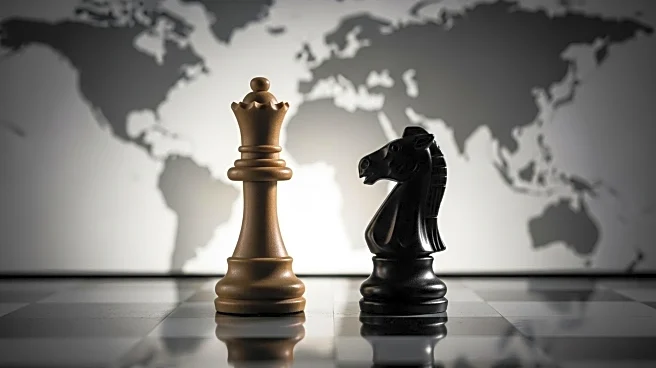What's Happening?
President Trump and the European Union are reportedly at odds over strategies to end the war in Ukraine. While both agree on the need to pressure Russia, their approaches differ. The EU favors formal sanctions on businesses linked to Moscow, whereas the Trump administration is considering tariffs to weaken Russia's economic capacity. Diplomatic discussions have intensified, with EU officials visiting Washington to negotiate these strategies. The divergence comes amid increased Russian drone strikes in Ukraine and NATO's response to airspace violations.
Why It's Important?
The differing strategies between the U.S. and EU highlight the complexities of international diplomacy in addressing the Russia-Ukraine conflict. The EU's focus on sanctions reflects a traditional approach to economic pressure, while Trump's consideration of tariffs suggests a more aggressive trade-based strategy. These differences could impact the effectiveness of collective efforts to curb Russia's military actions and influence global economic relations, particularly with major Russian oil buyers like China and India.
What's Next?
Ongoing negotiations between the U.S. and EU will likely continue as both sides seek a unified approach to pressure Russia. The potential imposition of tariffs on China and India could have significant economic repercussions, affecting global trade dynamics. Additionally, the EU's preparation of a new sanctions package indicates a continued commitment to economic measures, though its success may depend on U.S. cooperation. The international community will be watching closely for any shifts in policy or strategy that could alter the course of the conflict.
Beyond the Headlines
The strategic divergence also reflects broader geopolitical tensions, as countries navigate alliances and economic dependencies. The EU's reluctance to impose tariffs on China and India underscores the challenges of balancing economic interests with political objectives. The situation raises questions about the long-term sustainability of current strategies and the potential need for innovative diplomatic solutions. The conflict's impact on energy markets and global supply chains further complicates the international response.










